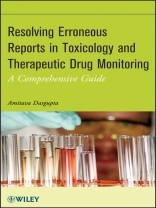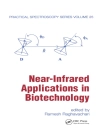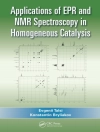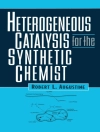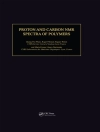The tools for detecting false positives, false negatives, and interference in interactions when testing and monitoring therapeutic drug use
For physicians monitoring a patient’s progress, efficacy of treatment is often linked to a patient’s response to medication. Determining whether a patient is taking the prescribed amount, the drug or dosage is effective, or the prescribed medication is interacting with other drugs can be determined through drug testing. Written as a guide for toxicologists, chemists, and health professionals involved in patient care, Resolving Erroneous Reports in Toxicology and Therapeutic Drug Monitoring provides an up-to-date introduction to the tests and methodologies used in a toxicology lab as well as the sources of testing error that can lead to false positives, false negatives, and unreliable conclusions of drug abuse or under use.
Covering a host of common therapeutic drugs as well as specific types of interference in immunoassays used in drug testing, the book details a number of possible testing scenarios and problems as well as solutions:
* False positive results in immunoassays for drugs in abuse testing
* Interferences in immunoassays used for monitoring anticonvulsants, tricyclic antidepressants, and digoxin
* False positive alcohol tests using breath analyzers and automated analyzers
* When a toxicology report is negative in a suspected overdose patient: the world of designer drugs
* Effects of drug-herb interactions on therapeutic drug monitoring
* Pharmacogenomics and the general principles of genetic analysis
* Approaches for eliminating interference/discordant specimen in therapeutic drug monitoring and drugs in abuse testing
* What to do in case there is no readily available method for testing
Complete with easy-to-read tables and flowcharts, this book helps toxicologists, clinical chemists, clinical pathologists, and forensic pathologists develop accurate, unbiased drug monitoring and toxicology reports. Health care professionals involved in patient care, especially of critically ill patients, will find this guide indispensable in making sure lab tests are reliable enough to provide high-quality care. An indispensable handbook to the entire suite of toxicology lab tests, as well as all the possible sources of testing error, Resolving Erroneous Reports in Toxicology and Therapeutic Drug Monitoring offers clear remedies for eliminating and preventing testing error.
قائمة المحتويات
Preface vii
Chapter 1 An Introduction to Tests Performed in Toxicology
Laboratories 1
Chapter 2 Challenges in Drugs of Abuse Testing 31
Chapter 3 False-Positive Results Using Immunoassays for Drugs of
Abuse Testing 53
Chapter 4 True-Positive Drugs of Abuse Test Results Due to Use
of Prescriptions and Nonprescription Drugs 67
Chapter 5 When Toxicology Report Is Negative in a Suspected
Overdosed Patient:
The World of Designer Drugs 85
Chapter 6 Abuse of Magic Mushrooms, Peyote Cactus, Khat, and
Solvents: No Readily Available Laboratory Tests 101
Chapter 7 Limitations of Blood Alcohol Measurements Using
Automated Analyzers and Breath Analyzers 121
Chapter 8 Role of the Laboratory in Detecting Other Poisoning,
Including Pesticides, Ethylene Glycol, and Methanol 139
Chapter 9 Poisoning with Warfarin and Superwarfarin: What Can
Laboratory Testing Do? 161
Chapter 10 Plant Poisoning and the Clinical Laboratory 185
Chapter 11 Sources of Erroneous Results in Therapeutic Drug
Monitoring Due to Preanalytical Errors, High Bilirubin, Hemolysis,
and Lipids 213
Chapter 12 Challenges in Therapeutic Drug Monitoring of Digoxin
Using Immunoassays 237
Chapter 13 Interference in Immunoassays Used for Monitoring
Anticonvulsants and the Usefulness of Monitoring Free
Anticonvulsants 265
Chapter 14 Interference in Immunoassays Used to Monitor
Tricyclic Antidepressants 293
Chapter 15 Therapeutic Drug Monitoring of Immunosuppressants:
Limitations of Immunoassays and the Need for Chromatographic
Methods 323
Chapter 16 Effect of Drug-Herb Interactions on Therapeutic
Drug Monitoring 355
Chapter 17 Pharmacogenomics and the Toxicology Laboratory
385
Chapter 18 Approaches for Eliminating Interference/Discordant
Specimens in Therapeutic Drug Monitoring and Drugs of Abuse Testing
411
Index 429
عن المؤلف
AMITAVA DASGUPTA is a Professor in the Department of Pathology and Laboratory Medicine at the University of Texas Medical School at Houston and the director of clinical chemistry, toxicology, and point of care testing at the Memorial Hermann Hospital. He is the author of Herbal Supplements and Pharmacogenomics in Clinical Therapeutics, both published by Wiley.
